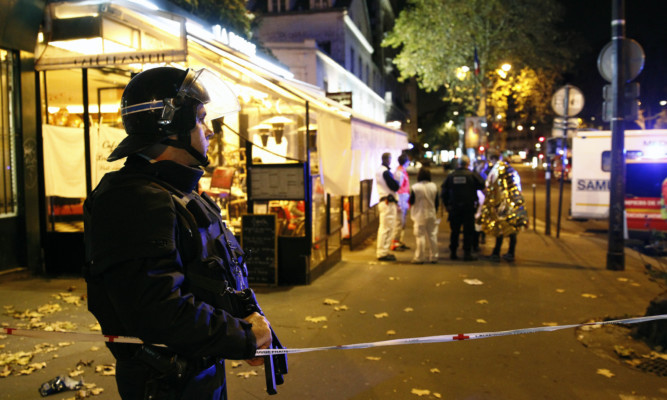“A war on conflict, a war on want and a war on mans inhumanity to man.”
That would be a war worth having and one which France is now in the perfect position to lead, says Alex Salmond in the wake of Friday night’s horrific terrorist attacks on Paris.
The former First Minister warns against indiscriminate bombing and argues military action is not an end in itself when it comes to defeating Daesh – the name Islamic State hates to be called.
Instead, he reckons the key to victory is a watertight political strategy which rebuilds the Middle East as a peaceful, prosperous place.
In his exclusive Courier column, the ex-SNP leader writes: “Security measures are necessary. The unsung hero of this tragedy is the security guard who detected the bombs and therefore kept terrorists outside rather than inside the Stade de France. However, security can never be foolproof or at least not without sacrificing the very tenets of a free society.
“Demonsing sections of the population as being somehow responsible for Daesh will merely feed greater division and further terror. A French Muslim is no more to blame for Daesh in the modern world than a Scots presbyterian was responsible for the Spanish Inquisition in the 16th century.”
To read Alex Salmond’s column in full, pick up a copy to Monday’s Courier or try our online edition.
